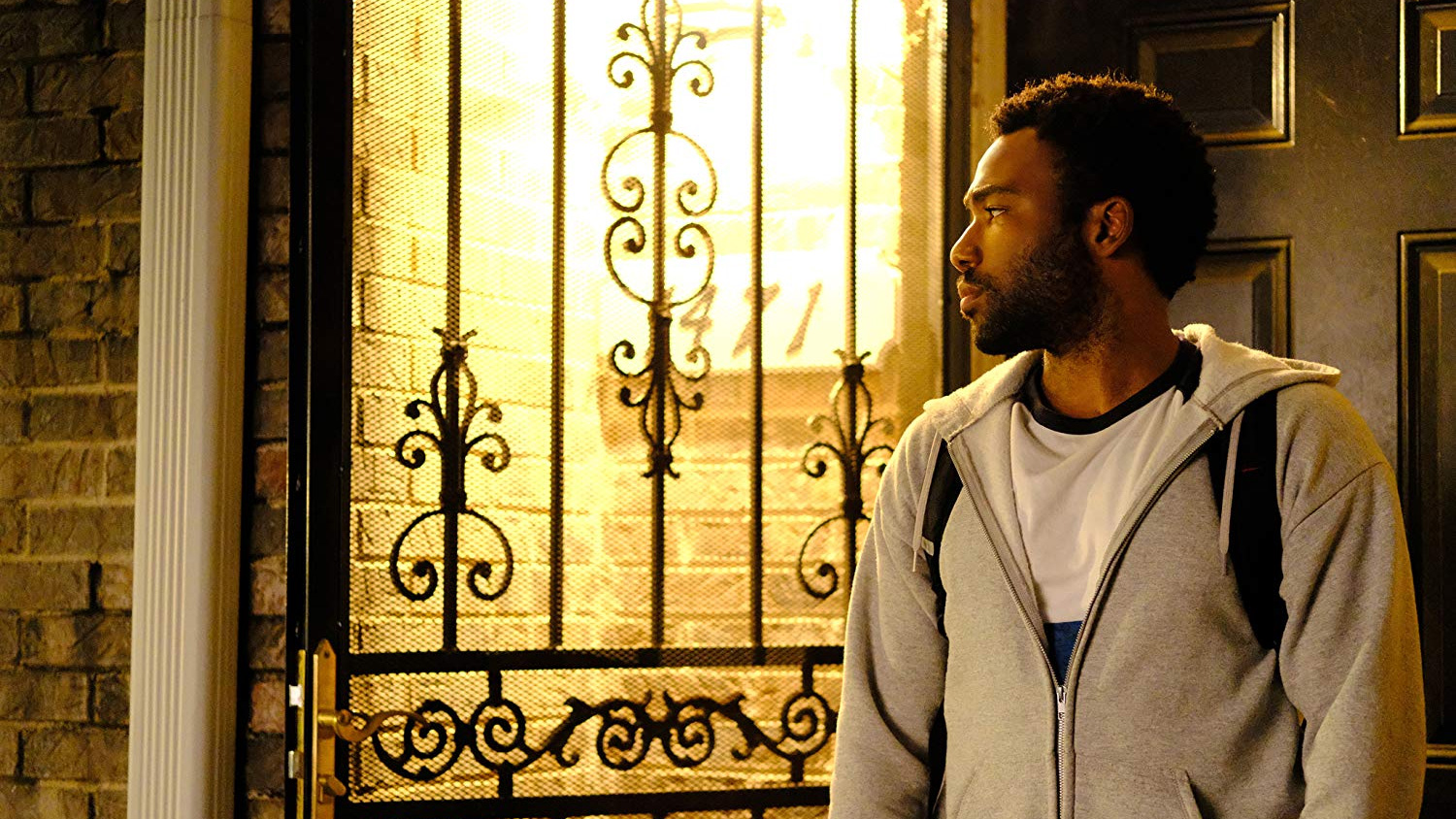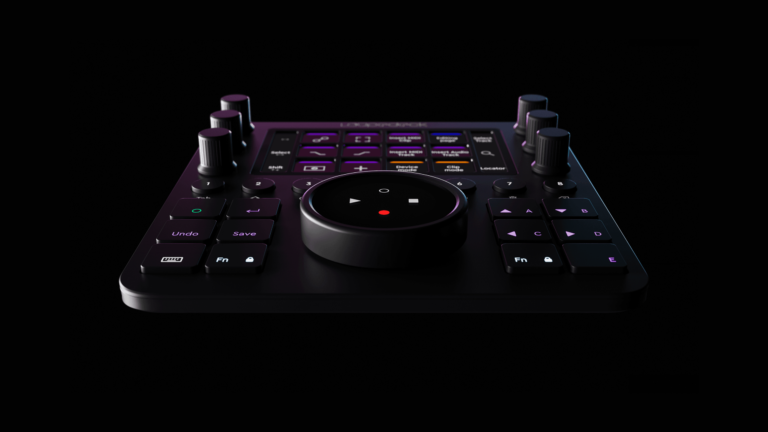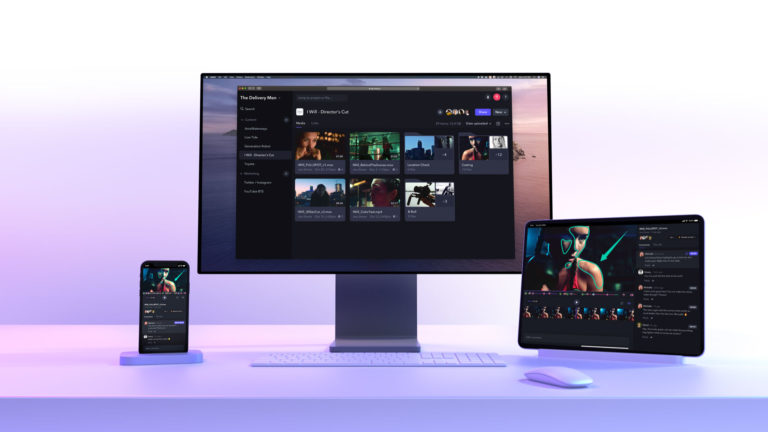Isaac Hagy and Kyle Reiter on Mixing Humor and Horror in a Funny, Scary Show That Feels Like Real Life
The second season of Donald Glover’s half-hour slice-of-Southern-city-life chronicle Atlanta earned 16 Emmy nominations, including Outstanding Comedy Series, Outstanding Directing for a Comedy Series, and Outstanding Lead Actor, Supporting Actor, and Supporting Actress in a Comedy Series. We’ve already spoken with supervising sound editor Trevor Gates, who is up for a Sound Editing Emmy. Now, our Hot-lanta coverage continues with our conversation with editors Isaac Hagy and Kyle Reiter, who earned two nominations for cutting standout episodes “Alligator Man,” featuring a standout cameo by Katt Williams, and “Teddy Perkins,” a creepy old-dark-house yarn, respectively.
StudioDaily: Maybe we can start by having both of you tell me a little bit about your background, and then how you ended up working on Atlanta in the first place.
Kyle Reiter: I’m kind of a self-taught editor. I made a lot of my own web stuff and cut some friends’ things, and then small TV shows. It got bigger and better until I hooked up with Kaitlin Waldron, Atlanta‘s co-producer and post-production supervisor. When [director] Hiro [Murai] was looking for a second editor, she hooked me up with a job. We had worked on a couple of Comedy Central shows together.
Isaac Hagy: I actually went to school with Hiro. We lived across the floor from each other in freshman year at USC and ended up being roommates. So we’ve been working together for 12-15 years. We started doing low-budget music videos, and that led us to working with Donald. About five or six years ago, Donald approached Hiro about doing experimental short films. One called “Clapping for the Wrong Reasons” was a tonal precursor to Atlanta, in a way, and we’ve all been working together since that film. Donald had to fight a lot to get Hiro involved. Hiro had never done a show before. So they decided, we’ll take a risk with Hiro, but we’ll surround him with people who have made TV in the past.

Danielle Deadwyler, Gail Bean, Zazie Beetz, and Adriyan Rae in “Champagne Papi”
FX
SD: The show’s humor feels so naturalistic, not forced. How do you make that happen?
IH: The jokes are interesting. We try to avoid being too on-the-nose with a lot of the humor. We end up, even in the edit, burying a lot of jokes in the background. So a lot of the more heavily scripted jokes will end up off-screen, or as throways on the side — or even cut from the final edit.
KR: If I’m looking at line readings of jokes, I almost always use the one where they throw it away. It can be a rehearsal or a bad take. The less you lean into it, the funnier it comes across.
IH: If anything, we try to play up the reaction shots to a joke more than the actual joke itself.
SD: It must be a balancing act, tonally. This is a very funny show — but it’s also a serious show in a lot of ways.
KR: It’s got jokes, and it’s also scary. The key for us is just to make it feel authentic. I don’t want to sound corny, but life can be funny and scary — and it can be both at the same time. Not a funny moment, not a scary moment, but both. We’re trying to make it as real as possible.
IH: It’s also the genius of the world. Anything can happen at any given time. It really gives us a lot of flexibility to have a funny moment immediately undercut with something horrifying, or have a horrifying moment that someone might giggle at. The palette is so open to us. There’s a scene in the last episode of season 1 where a guy gets shot by the cops 20 times, and then [Glover’s character] Earn tries to get into the guy’s jacket for his lost keys. The worst thing that could possibly happen is followed by a joke, a laugh. Part of that is also just this acceptance of the world they live in. It’s a world where all of this exists. It’s probably a realistic interpretation — certainly it’s realistic to Donald and his brother’s experience in Atlanta.

Brian Tyree Henry in “Woods”
FX
SD: I understand you cut the show on Adobe Premiere Pro. How was that decision made?
IH: That was a decision that I made along with Kaitlin. The pilot was actually cut on Avid [by editor Ivan Victor]. It wasn’t until we came on board that we started using Premiere Pro. For me, I was much more comfortable on Premiere. I had used it on shortform projects, and I knew it very well. Learning Avid would have been just another hurdle while getting into this intimidating thing of cutting a TV show for the first time. And a lot of it came down to how Premiere dealt with audio. We knew it would be a show that was heavily defined by the sound of the world. Audio and sound is important, even in the offline edit, and I felt way more comfortable doing that in Premiere than in Avid.
KR: I agree completely. Sound is a big thing. We’re not dealing with score. All of the music is diegetic, and Premiere really helps us sound-design as complexly as we’d like, so our offline cuts sound pretty close to what the finals are going to sound like. We don’t have a ton of VFX shots, but for the ones we do, it’s really easy to link to [Adobe] After Effects, whether it’s a doing a phone comp or having something painted out and kicked back to us.
IH: Hiro and I come from a music video world that’s very DIY. Every person can do any role. So we’d cut and do effects in After Effects, so we’re already familiar with the Adobe world. He was pretty happy with the decision, as well.

Lakeith Stanfield (left) and Donald Glover in “Alligator Man”
FX
SD: Let’s talk a little about the specific episodes you guys are up for Emmys for. Isaac, can you talk about “Alligator Man”?
IH: The interesting thing is, that’s the first episode of the second season. We took a year and a half off between seasons, so there was a lot of build-up and anticipation between us and the crew. How are we going to come back? How will we start the show? What kind of tone will it have? And that episode does everything. It throws everything at the wall and comes back with an action sequence. There are two characters we’ve never met before who are speaking a very specific kind of urban dialect, almost impossible to understand. It leads into a shooting at a Mrs. Winners fast-food joint. I feel like the episode was fooling the audience — your favorite show is coming back, and we’re going to give you something entirely different. That was definitely a new experience for me, because I hadn’t cut action scenes before. But that episode also has hard comedy — that Florida section — and the really dramatic, touching scene between Katt Williams and Donald. And Katt was really, really great. On set, Donald had told Katt that he’d get nominated for an Emmy — and he was nominated for an Emmy, too.

The alligator in “Alligator Man”
FX
SD: Wasn’t there a great payoff shot near the end, where the alligator finally makes an appearance? I remember that being an amazing moment.
IH: You’re told there’s an alligator locked in the bathroom. So half of the episode takes place in this dark, dirty, cigarette-stained house, a family chamber drama with the sense of the alligator in the next room. I don’t think the audience expects to actually see the alligator. And then, at the cathartic moment, the alligator is let loose into the world. We kind of worked on it with the score — we had the Delfonics song “Hey Love” playing, and that fit into the heightened surrealness of that moment.

Lakeith Stanfield in “Teddy Perkins”
FX
SD: Kyle, what about “Teddy Perkins?” Did that episode require a different approach from your work on other episodes?
KR: It was different in that we knew pretty early on that they were going to air it without commercial breaks. There’s no B story or anything, so we knew we were living with these guys [Darius and Teddy] the whole time and we had that to contend with. The performances are pretty extraordinary. The way Hiro and [DP] Christian [Sprenger] covered it was next level. For me, it was daunting, because there were so many different ways to do things. And Teddy was so great — from the very first day that I watched about 20 or 30 seconds of dailies, Isaac and Amy Seimetz were in there with me, and we knew, “Oh my god, this is going to be A Thing.”

Donald Glover in “Teddy Perkins”
FX
SD: Teddy Perkins is played, uncredited, by Donald Glover, nearly unrecognizable behind a mask. Did you take that into account when you were cutting?
KR: No, I don’t think so. I never had any evidence that it was Donald when I was cutting it. I wasn’t on set. And I didn’t do anything special to protect it or anything like that. I leaned into it.
SD: What about the overall atmosphere of the piece?
KR: Our sound editor, Trevor [Gates], and our mixer, Diego [Gat], did a ton of work on that. You want to keep it silent, but to hear them describe it it’s more difficult to keep things silent. You’re not just removing sound. They paid attention to the different tone of the different rooms. You want to keep the emptiness, but give each room its defining characteristic.
SD: Wasn’t there some work done on Teddy’s voice?
KR: No. We had talked about it — maybe we could pitch his voice up or down. We had done tests in Premiere, but we realized we didn’t need it. We didn’t need it to sound fake. It was off-putting enough already, so we didn’t want people to go, “Oh, they’re messing with his voice.”
SD: This episode gets noticeably more intense in the last few minutes. Was it tricky to accelerate the pacing?
KR: Actually, the trick with it wasn’t the ending. It was the beginning. Hiro and I worked very hard on pacing it very deliberately, keeping it slow and drawing people in the way Teddy is drawing in Darius. That was by design. Those first couple of scenes of them talking are long and slow and drawn out. If people are going to get on board with this, by the end we’ll have them completely hooked when things pick up a bit.
SD: I think it helps the show that it only runs 3o minutes or so. It’s enough to suck you in to its world and tell a proper story but no longer than it needs to be.
KR: We should give props to FX, which lets us have whatever runtime we want. If we send a cut that’s 28 or 29 minutes, they’re like, “OK.” They don’t sweat us and say, “You’ve got to keep it 22 minutes.” We get that and most people probably don’t.
IH: Online, there are people talking about how they wish it was an hour-long show. I think 30 minutes is the sweet spot. Brevity helps. It’s interesting that it is a half-hour comedy, but it has the pace of an hour-long. We take our time with things, and that makes it unique in the 30-minute comedy space.

Scene from “Alligator Man”
FX
Crafts: Editing
Sections: Creativity
Topics: Project/Case study atlanta donald glover emmys 2018 fx hiro murai isaac hagy kyle reiter tv
Did you enjoy this article? Sign up to receive the StudioDaily Fix eletter containing the latest stories, including news, videos, interviews, reviews and more.










